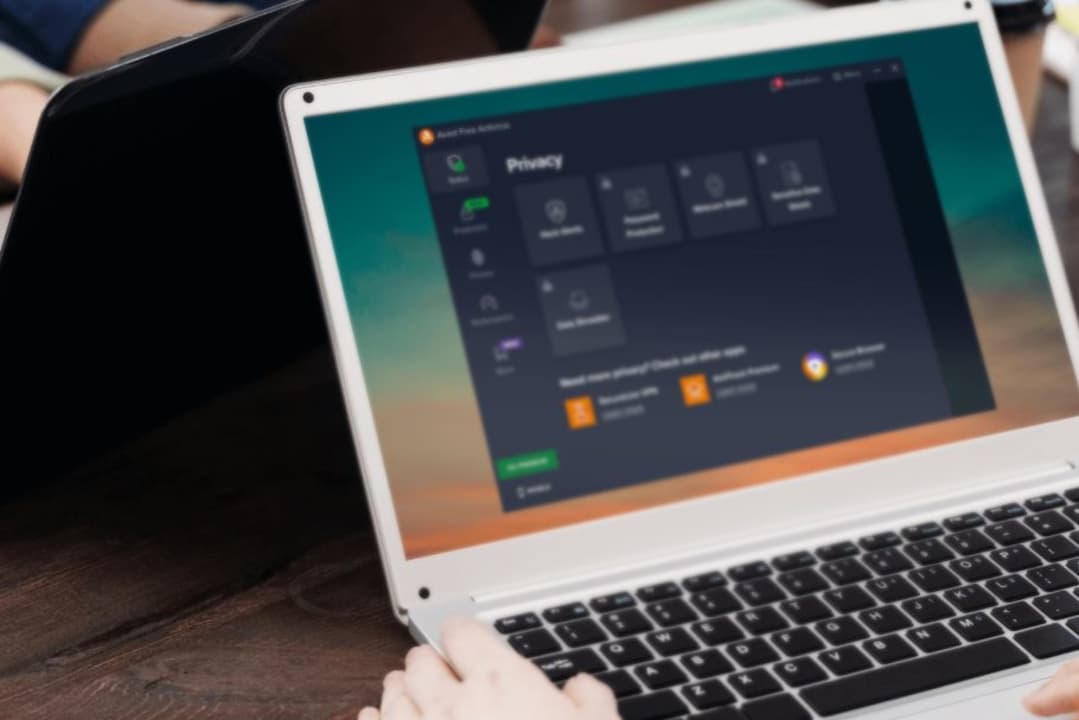Over 1.1 million reports of identity theft are filed through the FTC’s IdentityTheft.gov website per year: This can be considered an evident reminder of the prevalent and escalating threat of identity theft in our digital era. This form of cybercrime, which can devastate finances, medical records, and personal reputations, manifests in various guises and the scariest part is that you’ll never see it coming. As our lives become increasingly digitized, the avenues for identity thieves grow, making it an ever-present concern for individuals across the globe. But there’s a solution to all your privacy problems: Avast Free Antivirus
Avast is a staple in cybersecurity, offering a comprehensive protection against a countless number of digital threats. As we delve deeper into the complexities of identity theft, we’ll also explore how Avast Free serves as a critical ally in safeguarding your digital identity. From real-time malware detection to phishing scam alerts, Avast Free provides an essential layer of defense, enhancing your online security and peace of mind. Would you like to know why?

What is Identity Theft?
Identity theft is a form of fraud that involves using someone else’s personal information without their permission, typically to access their bank and monetary accounts. It can have devastating effects on individuals’ financial stability, emotional well-being, and overall quality of life. Identity theft can manifest in several forms, these are the most common ones:
- Financial Identity Theft: This is the most common type, where thieves stole personal information to gain access to your bank accounts, credit cards and are able to make unauthorized purchases with this information.
- Criminal Identity Theft: This happens when a criminal impersonates someone else when committing a crime. This can lead to wrongful arrests and records for the victim.
- Medical Identity Theft: Thieves use someone’s personal information to receive medical services, affecting the victim’s medical records and potentially leading to incorrect medical treatment.
- Synthetic Identity Theft: Thieves combine real and fake information to create a new identity, often to open fraudulent accounts.
How Identity Theft Occurs
While most of us don’t think about it, our online life is a treasure that leaves juicy trails of personal information with every link and every form we fill. While this can be convenient, it also attracts all kinds of hackers and cybercriminals to get some profit out of it. Do you know how they access all this data? Here are some of the most common risks that can lead to the dreaded identity theft:
- Phishing: Sending fraudulent emails or texts that mimic legitimate organizations to trick individuals into providing personal information.
- Malware: Malicious software installed without the user’s knowledge to steal information directly from their devices.
- Social Engineering: Manipulating people into divulging confidential information through psychological tactics.
- Unsafe Browsing Habits: Clicking on unverified links or visiting unsecured websites can expose your device to malware. These sites often lack the security measures necessary to protect your information and can be a hotbed for malicious software designed to steal data.
- Unsecured Wi-Fi Networks: Public Wi-Fi networks, while convenient, are often not secure. Cybercriminals can intercept the data transmitted over these networks, including passwords, credit card numbers, and other personal information.
- Oversharing on Social Media: Sharing too much personal information on social media platforms can make you an easy target for identity thieves. Information such as your birthdate, address, or even vacation plans can be used to impersonate you or guess your passwords.

The Impact of Identity Theft
The consequences of identity theft can be both immediate and long-lasting. One of the most common ones is financial loss, where unauthorized charges can take a toll on the victim’s financial health. But that’s not all, identity theft can lead to credit damage, where unauthorized activities can adversely affect victims’ credit scores, making it difficult to obtain loans or new credit lines. All of these lead unequivocally to emotional distress. The violation of personal privacy and the problems of resolving identity theft can lead to significant emotional and psychological strain. This makes identity theft one of the scariest situations we can find ourselves in by simply online browsing.
Common Risks: How do Cybercriminals Steal Our Data
In today’s digital age, cybercriminals will use all kinds of ever evolving tactics to access your personal data and so they can ultimately steal your identity. While we’ve already set the basis on how this can occur, we’ll offer you a few insights on the most used tactics that hackers use nowadays to get hold of your information. These include:
- Spear-Phishing: Unlike broad phishing attempts, spear-phishing targets specific individuals or organizations with personalized messages. These emails or messages appear to be from a trusted source and aim to trick recipients into revealing sensitive information or downloading malware. Double-check email addresses and sender details before clicking anything.
- Ransomware: This type of malware locks you out of your own files, with attackers demanding payment in exchange for restoring access. Ransomware can infect your system through malicious downloads or vulnerabilities in network security. Never pay: Back up your data regularly and use reliable antivirus software such as Avast Free to prevent infection.
- The Dark Web’s Role: The dark web is a part of the internet not indexed by search engines and requires specific software to access. It’s notorious for being a marketplace for selling stolen data, including personal information obtained through identity theft.
- Data breaches: Companies big and small suffer from time to time from data breaches. Amongst the information stolen from their servers, there’s usually usernames, passwords and sensible information that malicious third parties can use to steal your identity.

Avast’s Role in Combating Identity Theft
In the battle against identity theft, having a powerful line of defense is crucial. Avast Free emerges as a comprehensive cybersecurity solution, designed to shield users from the army of threats that spread through the digital landscape. This section explores the pivotal role Avast Free plays in protecting against identity theft, highlighting its key features and additional services that enhance security.
Navigating Digital Security with Avast Free
Avast Free is more than just antivirus software; it’s a complete cybersecurity suite that guards against the full spectrum of online threats. Engineered with the latest in threat detection and mitigation technologies, Avast Free ensures that users can navigate the digital world with confidence, safeguarding their personal information from the clutches of cybercriminals.
Enhancing Digital Safety with Avast Free’s Key Features
Taking advantage of Avast Free’s comprehensive security features, users can significantly reduce their risk of falling victim to identity theft. Avast Free stands as a reliable guardian of your digital identity thanks to its powerful features. Its more relevant are:
- Real-time Malware Protection: At the heart of Avast Free’s defenses is its real-time malware protection. This feature continuously scans your computer for malware, including viruses, spyware, and ransomware that could be used to steal or compromise your identity information. By intercepting these threats before they can do harm, Avast Free keeps your personal data out of the wrong hands.
- Phishing Protection: Phishing scams are a prevalent tactic used by identity thieves to trick individuals into divulging sensitive information. Avast Free employs advanced algorithms and user-reported data to identify and block phishing sites, alerting you if you’re about to visit a potentially dangerous website. This proactive approach ensures that you’re protected from deceitful attempts to capture your personal details.
- Wi-Fi Security: An unsecured Wi-Fi network is a vulnerable entry point for cybercriminals. Avast Free includes Wi-Fi security features that monitor your network for unauthorized access and potential intrusions. It alerts you to vulnerabilities in your Wi-Fi setup, helping you secure your network against attackers looking to intercept data transmitted over it.
- Behavior Shield: Avast’s Behavior Shield is a sophisticated system that monitors applications on your device for suspicious behavior. This includes detecting patterns that may indicate malware designed to steal identity data. By identifying and blocking these threats in real time, Behavior Shield acts as a crucial safeguard against sophisticated malware that might evade traditional detection methods.
Strengthening Your Digital Defense with Avast Free
Avast Free, stands as a leader against the multifaceted threats of identity theft. Its comprehensive suite of features—from real-time malware protection and phishing alerts to Wi-Fi security and behavior monitoring—provides an astounding layer of defense that is essential for safeguarding personal and financial information online. This protection is not just about preventing attacks; it’s about ensuring peace of mind in an environment with constantly evolving threats.
Avast Free’s role in combating identity theft emphasizes the necessity of powerful cybersecurity measures, demonstrating how advanced technology can be leveraged to protect against the ingenuity of cybercriminals. By downloading Avast Free and integrating its recommended cybersecurity practices into your daily online activities, you take a crucial step towards comprehensive digital protection, ensuring that your identity remains secure in the vast and unpredictable cyberspace.


